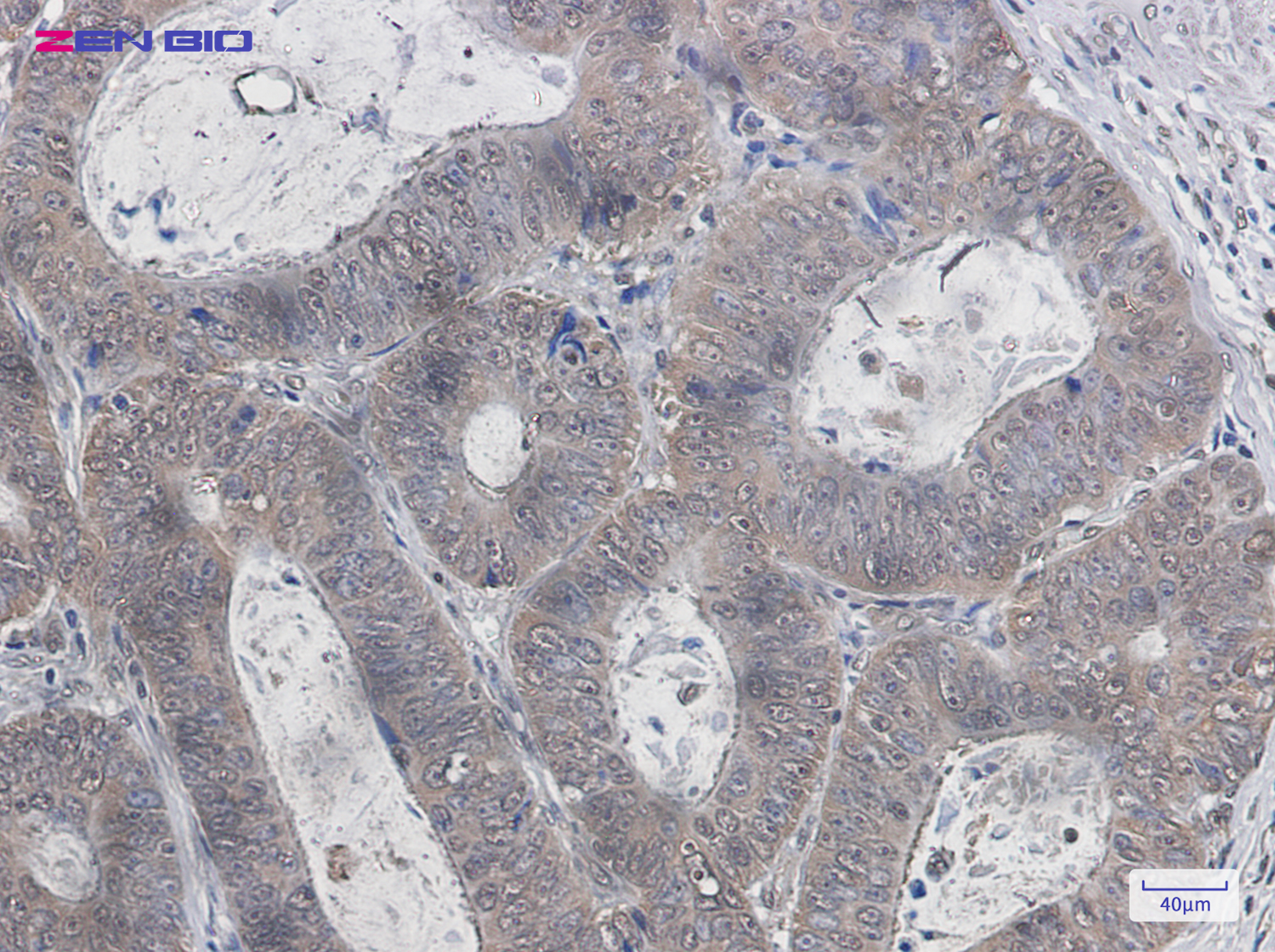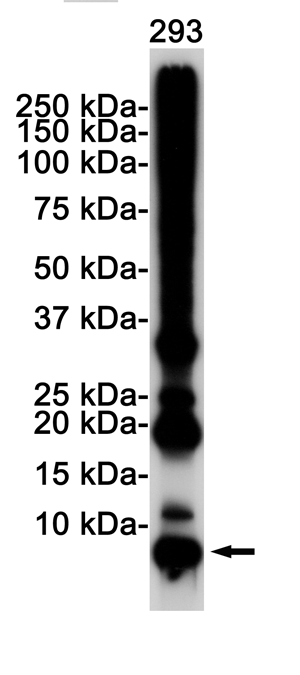-
Product Name
Anti-K-48 Linkage Specific Ubiquitin Rabbit antibody
- Documents
-
Description
K-48 Linkage Specific Ubiquitin Rabbit polyclonal antibody
-
Tested applications
WB, IHC-P, ICC/IF, FC
-
Species reactivity
Human, Mouse, Rat
-
Alternative names
HEL-S-50 antibody
-
Isotype
Rabbit IgG
-
Preparation
Antigen: A synthetic peptide of human K-48 Linkage Specific Ubiquitin
-
Clonality
Polyclonal
-
Formulation
Supplied in 50nM Tris-Glycine(pH 7.4), 0.15M Nacl, 40%Glycerol, 0.01% sodium azide and 0.05% BSA.
-
Storage instructions
Store at -20°C. Stable for 12 months from date of receipt.
-
Applications
WB: 1/2000
IHC: 1/50
ICC/IF: 1/100
FC: 1/20
-
Validations

Immunohistochemistry of K-48 Linkage Specific Ubiquitin in paraffin-embedded Human colon cancer tissue using K-48 Linkage Specific Ubiquitin Rabbit pAb at dilution 1/50

Western blot detection of K-48 Linkage Specific Ubiquitin in 293 cell lysates using K-48 Linkage Specific Ubiquitin Rabbit pAb(1:1000 diluted).
-
Background
Swiss-Prot Acc.P0CG47.Ubiquitin: Exists either covalently attached to another protein, or free (unanchored). When covalently bound, it is conjugated to target proteins via an isopeptide bond either as a monomer (monoubiquitin), a polymer linked via different Lys residues of the ubiquitin (polyubiquitin chains) or a linear polymer linked via the initiator Met of the ubiquitin (linear polyubiquitin chains). Polyubiquitin chains, when attached to a target protein, have different functions depending on the Lys residue of the ubiquitin that is linked: Lys-6-linked may be involved in DNA repair; Lys-11-linked is involved in ERAD (endoplasmic reticulum-associated degradation) and in cell-cycle regulation; Lys-29-linked is involved in lysosomal degradation; Lys-33-linked is involved in kinase modification; Lys-48-linked is involved in protein degradation via the proteasome; Lys-63-linked is involved in endocytosis, DNA-damage responses as well as in signaling processes leading to activation of the transcription factor NF-kappa-B. Linear polymer chains formed via attachment by the initiator Met lead to cell signaling. Ubiquitin is usually conjugated to Lys residues of target proteins, however, in rare cases, conjugation to Cys or Ser residues has been observed. When polyubiquitin is free (unanchored-polyubiquitin), it also has distinct roles, such as in activation of protein kinases, and in signaling.
Related Products / Services
Please note: All products are "FOR RESEARCH USE ONLY AND ARE NOT INTENDED FOR DIAGNOSTIC OR THERAPEUTIC USE"
